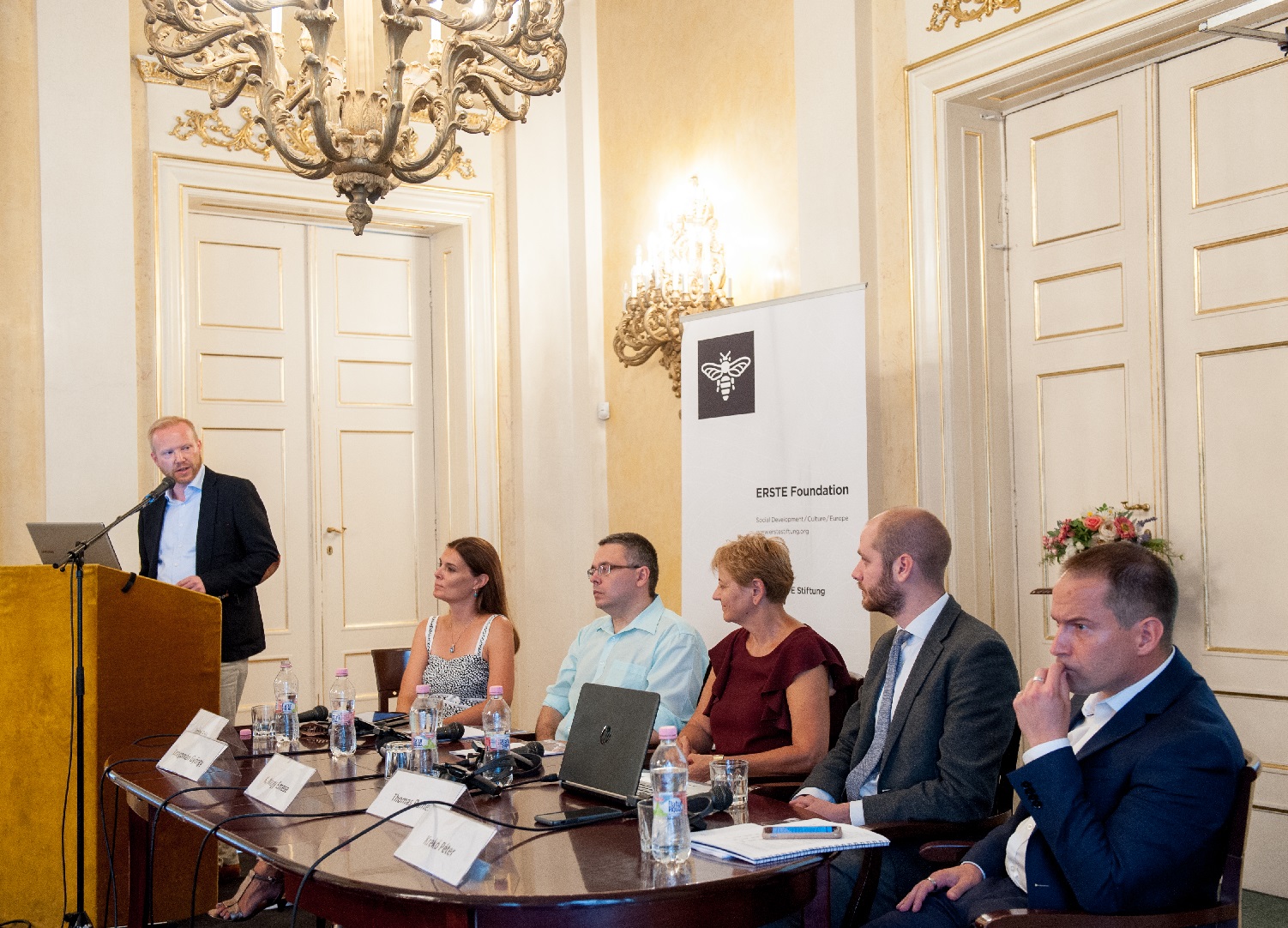
04 Jul Europe’s Future: What do the public and the elite really think? (Event summary)
On June 28th, a panel discussion was held on account of a Chatham House/Erste Stiftung report entitled Europe’s Future: What do the public and the elite really think? CEID participated as a partner in the organization of said event. The panelists of the discussion were György Dragomán, writer, Thomas Raines, Director of the Europe Program of Chatham House, Emese K. Nagy, Director of the Elementary School in Hejőkeresztúr and Péter Krekó from Political Capital. The discussion was moderated by Ms Edit Inotai, Senior Fellow of CEID.
The report was conducted on the basis of an extensive survey, examining the differences in attitudes in 10 EU member countries. Its main goals are to help achieve a more inclusive debate that reflects these differences, and to provide suggestions on how to possibly bridge the gaps.
The focus of the discussion was the findings and implications for both Hungary and the EU. Considering the results of the survey, Hungarians tend to think about the Schengen area as the biggest achievement of the EU, mostly feel confident about the Union and feel that they have benefited from being members of it. However, most Hungarians do not want the EU to have more powers, and would be happier to see some redistribution of power in favor of the member states. On the topic of Brexit, most Hungarians think that the UK leaving will weaken the EU, and despite the referendum, the EU should try keep the UK as close as possible. In addition, almost half of those questioned think that another member state will leave the Union within the next decade.
All the panelists seemed to agree, that the results reflect the unique position of Hungary in Europe and inside the EU. For Hungarians, the most important aspect of the EU is freedom, however – resulting mostly from historical events, the feeling of being a periphery, and the unique language – this nation tends to have a negative mindset about foreigners and migration, somewhat similarly to other countries of Central and Eastern Europe. According to the panelists, in order to bridge the differences between the elite and the public in Hungary, it would be crucial for the elite to find a proper and more open way to communicate with the public. Finally, with regards to the European identity, the key aspect would be to base this identity on common European values, which are laid down in almost all EU documents and are in fact present in every European country, even outside the European Union.

